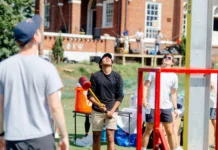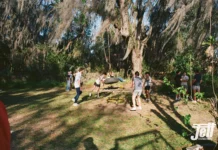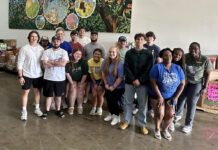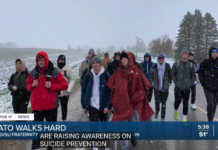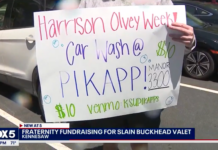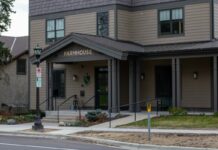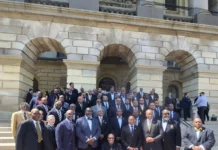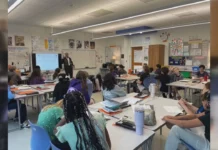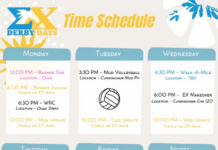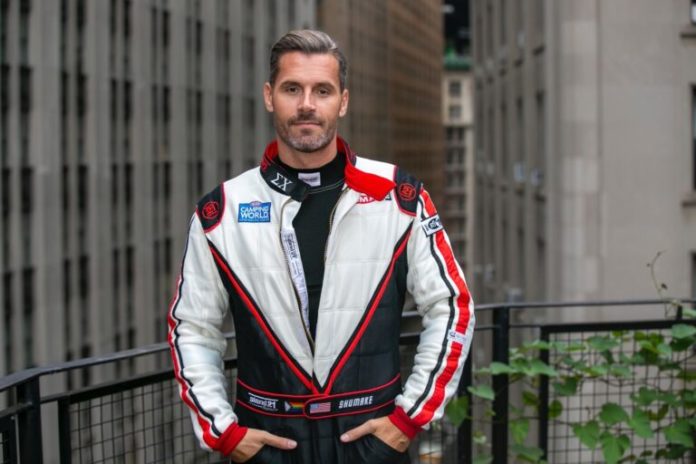
Transformational leadership is the practice by which leaders inspire and empower others to innovate and create change that will positively impact the Fraternity and ultimately the world. The transformational leader first must learn to manage self before being able to lead others and cultivate action within their community and campus.
If Travis Shumake, NORTHERN ARIZONA 2007, didn’t have courage and resiliency, his life would look a lot different. He wouldn’t have been a Sigma Chi, and he wouldn’t be the first openly gay Funny Car driver in the National Hot Rod Association. The current Sigma Chi Foundation director of development for the Northeast region recently resumed his racing dream after pausing it at age 15 upon the death of his father, Tripp Shumake, an Arizona Drag Racing Hall of Fame inductee who was a mentor to him. Today Shumake is making an impact in the sport not only for his driving record but also for the representation and visibility he brings by being an openly gay competitor. He discusses below his path to being a drag racer, the impact Sigma Chi has made on his life and what transformational leadership and putting it into practice means to him.
TELL ME A LITTLE BIT ABOUT YOUR DECISION TO PURSUE DRAG RACING AND HOW YOUR FATHER INSPIRED THIS.
My dad [Tripp Shumake] was a professional race car driver his entire life. I was in our storage unit in Arizona over Thanksgiving and found a paper he wrote in seventh grade about wanting to be Arizona’s first professional drag racer in 1956. And he did it. That’s what he did with his life. He was effectively the first Arizonan in the drag racing hall of fame.
I grew up around the sport with him. We raced go-karts competitively together as kind of our connection and as a way to introduce me to driving. In drag racing, you go straight really fast. So we raced go-karts so I could have other skills, such as learning what to do when something goes wrong because you don’t really learn much just going straight. Sadly, when I was 15, my dad was killed in a highway accident. So, kind of stops that [drag racing] dream, right?
Same as with my father, I wrote every paper about being a race car driver when I [grew] up. Right around the time my father passed away, I was realizing I was gay. So his passing was kind of an easy out for me to not have to deal with that. I literally went from being a race car driver to being a competitive cheerleader. I kind of let go of that dream and for 20 years went to the races, enjoyed watching them and was just always the guest of other drivers as Tripp’s kid. I’d come to the races and have this fun experience, but I never thought more about it.
And then in March [2021] I was at a race in Florida and was hearing stories about my dad I had never heard from other drivers. I realized that by staying more around this community I was going to connect with my dad’s story and hear more about him. We also were talking about the social dynamics of drag racing and how it’s a 60-40 conservative-liberal community, but it doesn’t look that way.
I made a joke at this dinner like, “Or I can just come be the first gay race car driver and finish that childhood dream.” And the restaurant went silent. A race team owner, a sportscaster from Fox Sports and everyone [at dinner] was like, “Yeah, this is totally viable. Here’s how this could work.” We kind of put some pen to paper, and that was now seven months ago. So, my dad’s influence has always been there. I just thought that chapter was closed.
Drag races work as a 16-car bracket, like March Madness. It starts in the morning with 16 cars, and by the end of the day there’s two. And my family would never watch the final race because my dad didn’t do traffic. And that weekend I’m like, “I’m not following that rule. I’m on vacation in Florida.” So I watched the race, and I was stuck in two hours of traffic getting out of the racetrack. [While stuck in traffic] this Miranda Lambert song came on, “The House That Built Me,” and I just started bawling in the car. I’m like, “I’m going to be a race car driver.” The only reason I heard that song was because I was stuck in traffic. I was like, “We’re doing this, Dad.”

